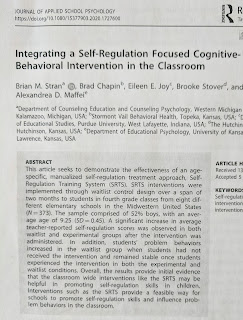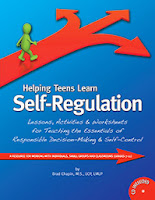We are very excited to announce this brand new tool for engaging children in the process of learning and practicing self-regulatory skills. As you may already know, self-regulation is directly related to success in many areas including academic performance, positive behaviors, the development of social skills, and emotional control.
This interactive
New App for Self-Regulation, is another big step forward in providing children, professionals, and parents avenues to practice these skills and apply in them in real-life situations. The App follows the Self-Regulation Training System, created by best-selling author and international speaker
Brad Chapin, by addressing the areas of Physical, Emotional and Cognitive regulation skills.
The Self-regulation Training System (SRTS) continues to gain interest from educators, school counselors, mental health professionals, and parents as the "common core" for behavior. Lessons and curriculum from this system continue to produce significant, measurable improvements in the self-regulation skills of children and teenagers.
Many have long struggled with the gap between theory and practice. The SRTS provides concrete lessons, activities and tools focused on developing and maintaining skills for success.
Based on the success of the
Challenge Software Program, a web-based tool that uses games and short video scenarios to help children challenge unhealthy thinking, we've continued to believe in utilizing technology to engage today's youth.
We would like to thank our partners at Wichita State University for their excellent work on this exciting tool for helping children succeed!
Visit
www.selfregulationtraining.com for more information on the Self-Regulation Training System, to schedule a training with Brad, or to view other engaging tools for teaching self-regulation.





